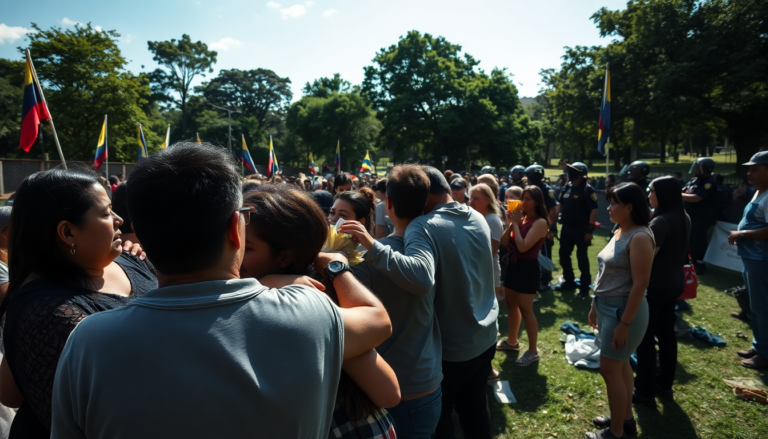Argomenti trattati
On Saturday, June 7, 2025, Colombian senator Miguel Uribe Turbay was the target of a shocking assassination attempt during a campaign event in Bogotá. The incident, which saw the 39-year-old politician shot in the head, has sent ripples of fear and anger across the country, raising alarms about the resurgence of political violence in Colombia.
The attack and immediate aftermath
While addressing a small gathering of supporters in a park in the Fontibón neighborhood, Uribe was struck by a bullet fired by a 15-year-old hitman. Eyewitness accounts and videos circulated on social media revealed a chilling scene: Uribe bleeding beside a car before being rushed to a local hospital, where his condition was reported to be serious. Bogotá’s Mayor, Carlos Fernando Galán, provided updates, mentioning that Uribe had undergone surgery and was now in critical recovery hours.
This attack marks a significant moment in Colombia’s political landscape as it is one of the first high-profile assassination attempts in decades. As the nation prepares for contentious elections scheduled for May 2026, this incident raises fears of a return to a dark era of political violence.
Political implications and reactions
The motivations behind the attack are still unclear, but experts suggest that the perpetrators likely hired hitmen, indicating a serious escalation in political threats. Elizabeth Dickinson, a Senior Analyst at Crisis Group International, expressed concerns that this act was intended to stoke tensions in an already polarized electoral context.
In the wake of the shooting, various political figures have reacted strongly. Uribe’s wife, Maria Claudia Tarazona, shared heartfelt messages on social media, asking for prayers for her husband’s recovery. Meanwhile, the political elite—ranging from right-wing opponents to the leftist President Gustavo Petro—have condemned the act. Petro, despite being a critic of Uribe, called for respect for life and condemned the violence that has plagued Colombia.
A history of violence
This incident inevitably draws comparisons to Colombia’s troubled past, particularly the assassination of presidential candidate Luis Carlos Galán in 1989 during a period marked by cartel violence. Observers fear that Uribe’s shooting signifies a return to a time when violence was a prevalent tool in political struggles.
As the country grapples with this shocking event, it also reflects on the broader implications for the safety of political candidates and the sustainability of democracy in Colombia. Vicky Dávila, a leading conservative figure in the upcoming presidential race, has called for immediate protection measures for candidates, urging the international community to intervene.
Calls for change and the future of Colombian politics
The gruesome reality of political violence in Colombia is a stark reminder of the challenges the nation faces. The Ministry of Defense has announced a reward for information related to the assassination attempt, emphasizing the urgency of addressing these threats. As political polarization deepens between left and right factions, this attack highlights the risks that politicians encounter as they navigate a treacherous landscape.
In this critical moment for Colombia, one can only hope that the nation learns from its past and takes steps to ensure the safety of its political figures. The road ahead may be fraught with challenges, but the resilience of the Colombian people could pave the way for a brighter, more secure future.

